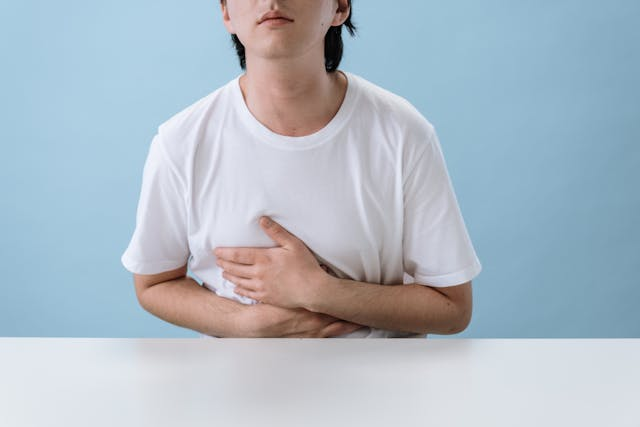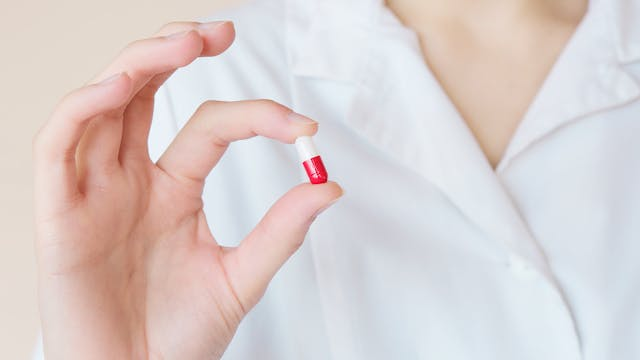
Diverticulosis vs Diverticulitis - Symptoms and Treatment
Time to read 3 min
Time to read 3 min
Diverticulosis is the medical term for small pouches that can form on the walls of the bowel in some individuals. Diverticulitis is referred to the condition when there is inflammation or infection present in these pouches that could lead to complications.
The umbrella term for these conditions is called the diverticular disease, requiring a special diet, medication, and other treatment protocols. The symptoms of diverticulosis can be diagnosed, as doctors check for the condition's signs through imaging examinations.
Having the symptoms of diverticulitis alone may not be noticeable for many people. You may get irritation, swelling, bloating, or abdominal pain, without having a specific severe reaction. In the case of diverticulitis, the symptoms severity rises with significantly more pain.
You may get bloating and gas when it comes to diverticulosis and diverticulitis, especially if you have a medical history of issues of the colon. It's important to know what are the symptoms of the condition, so that people with diverticulosis can get the right medication.
Pain in your abdominal region, such as in the lower belly region, can be connected to diverticular disease. Issues in your colon can lead to severe pain, which can require medication for alleviation.
Nausea is a common sensation, which can be related to vertigo when you have digestive health conditions. You should take medication but track the severity and intensity of the nausea sensation.
Signs of blood can indicate multiple things, which is why you need to track this sign for a significant period. You should also check for signs of blood in the vomit, as there could be infection related bleeding present.
You can have constipation, diarrhoea, loose stools, or symptomatic digestive issues, that could emerge when you have diverticular disease.
Abdominal cramping can indicate inflammation, gas, or other forms of digestive issues. You can track the pain, sensitivity, and cramping related irritability.
There are several risk factors and complications associated with diverticulosis vs diverticulitis. You should get a blood test and stool test done to check for the signs of diverticular disease. It's also important to know the risk factors that can lead to worsening of the condition.
A higher body weight can be associated with a higher risk factor for diverticulosis and diverticulitis. You should focus on changing your diet and lifestyle to prevent the emergence of the condition.
Smoking can lead to issues with respiratory and digestive health, which can open the system up to a range of conditions. You should cut smoking completely if you want to improve your diverticular disease signs.
High quantities of alcohol can create problems with the GI and the stomach lining over time. This can be one of the factors that can contribute to digestive health conditions such as diverticular disease.
A low fibre diet can be one of the main factors for diverticulosis, which is why the diverticular disease diet includes a high fibre approach.
A highly processed diet is harder on the digestive system to metabolize, especially when you're also dealing with diverticulosis.
The diverticular disease diet is a liquid-only diet for a few days, with broth and juice. After that, you can consume fibrous foods that can help with digestion and metabolization of food. You can then continue to improve your diet with a high-fibre approach.
You can make the right lifestyle changes, such as more activity, less smoking & drinking, and more stress management strategies. This can help reduce inflammation, improve digestion, and reduce the risk of abdominal pain and bloating.
Antibiotics can be prescribed immediately if there is an infection present. The doctor will need to analyse your medical history and check for the presence of sacs through MRIs, CT scans, and ultrasounds.
Bowel resection may be the surgical procedure for some patients with complicated diverticular disease. Doctors can perform colonoscopies after the person is healed to check for complications or other signs of rupturing. Your doctor will make the final decision when it comes to surgical procedures.
* * Medical Disclaimer - The following information is for educational purposes only. No information provided on this website, including text, graphic, and images, are intended as substitutes for professional medical advice. Please consult with your doctor about specific medical advice pertaining to your condition(s).

